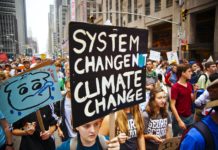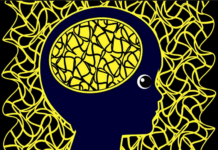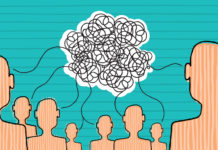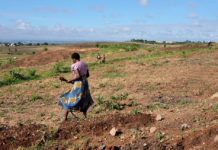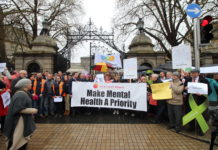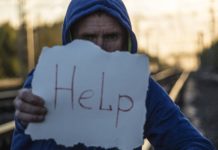Building an Intersectional Psychology of Economic Class
Innovative research methods and interventions could address socioeconomic disparities in academic achievement.
School Discipline is Racially Biased and Increases Misbehavior
School discipline that punishes minor misbehavior may increase adolescents’ misconduct and lead to racial inequalities in school discipline.
How to Change Psychology to Address Racial Health Disparities
Psychology can only deal with racial health disparities effectively by incorporating critical race theory and intervening at a structural level.
To Live and (Almost) Die in L.A.: A Survivor’s Tale
After 25 years of chronic emergency, 22 mental hospitalizations, a stint at a “community mental health center,” 13 years in a "board & care," repeated withdrawals from addictions to legal drugs, and a 12-year marriage, I plan to live every last breath out as a survivor, an advocate, and an artist.
Opening Doors in the Borderlands: An Interview with Liberation Psychologist Mary Watkins
MIA’s Micah Ingle interviews Mary Watkins about reorienting psychology toward liberation and social justice.
Blaming Climate Change Inaction on Psychological Barriers Misses the Point
Researchers argue that blaming climate change inaction on psychological barriers ignores the effects of neoliberal capitalism and social structures.
Parachute NYC Peer Support Program Presents Challenges and Opportunities
Anthropologists study Parachute NYC to identify challenges and opportunities for implementing peer support and Open Dialogue practices.
Psychotherapy Less Effective for People in Poverty and Those on Antidepressants
A new study finds poorer depression and anxiety outcomes in psychotherapy for people in economically deprived neighborhoods and those on antidepressants.
Hearing Voices Network Launches Family & Friends Support Group
One of the HVN's fundamental principles is that "the person having these experiences is in the best position to decide or discover what they mean" and thus each person must "not try to speak for" another. The challenge for a family group will likely be for members to move past speaking about our loved ones to find or imagine the space where we ourselves are liberated.
Training Health Workers in Therapy Leads to Improvements and Less Medication Use
A Nigerian study finds that more than three-quarters of patients improved, even when only 13% were prescribed medication.
Exporting Psychological Concepts Associated With Gender May Have Unintended Consequences
New qualitative research finds a shift in the meaning of gender as it enters the local lexicon of people in rural Malawi, in turn having negative ramifications for those it is meant to help.
How to Integrate Culture into Mental Health Care
Researchers explore how culturally responsive services can create greater equity in mental health care.
Berlin Manifesto for Humane Psychiatry Released
Changing the mental health and psychosocial support system in Germany requires public debate about the ways our society should help and support people in mental crisis and with chronic mental health problems. We believe the driving force behind all help and support should be humanitarianism and respect for inalienable human rights.
Discrimination Leads to Mental Distress for Gender Diverse People
Researchers seek to identify adaptive coping responses to discrimination for the transgender and gender diverse community.
Loneliness Increases Risk of Severe ‘Common Mental Disorders’
Loneliness was found to both predict and be reinforced by severe common mental disorders.
Climate Change, Mental Health and Collective Action: An Interview with Jennifer Freeman
In an interview with MIA's Akansha Vaswani, narrative therapist Jennifer Freeman calls for a shift away from individualistic approaches to 'eco-anxiety' and toward responses that connect us all to a counter-tsunami of action for the planet.
A Biopsychosocial Model Beyond the Mind-Body Split
Can a renewed biopsychosocial approach, grounded in an updated philosophy, foster person-centered medicine, and psychiatry?
How Social Dynamics at School Impact Teen Suicide
Teen suicide risk is influenced by relationships with adults and teachers, perceived popularity, close friendships, and school connectedness.
Economic Deprivation and Social Fragmentation Drive Suicide Rates in US
Major study finds that economic deprivation and a lack of social capital are driving increasing rates of suicide in the U.S.
Teacher Wellbeing Matters for Student Mental Health
Teacher’s personal wellbeing plays a role in students’ mental health outcomes, suggests a new study.
More Physical Activity-Based Mental Health Interventions Needed in Schools
What physical activity-based programs are being implemented in schools, how are they being researched, and what kind of impact have they made?
Higher Minimum Wage May Result in Fewer Suicide Deaths, Study Finds
New research suggests that minimum wage laws provide financial security that may help prevent suicide.
Debate Ensues Over Rights-Based Approach to Mental Health
Debate ensues as scholars and policymakers discuss how to bring a rights-based approach to mental health policy.
Green Space in Childhood May Protect Against Adult Mental Health Issues
A new study suggests proximity to green space as a child is linked to lower rates of mental health issues in adulthood.
Increasing Prevalence of Mood Disorders Among Teens and Young Adults
Depression, serious psychological distress, and suicide attempts have risen substantially since the early 2000s among young adults – what’s changed?






